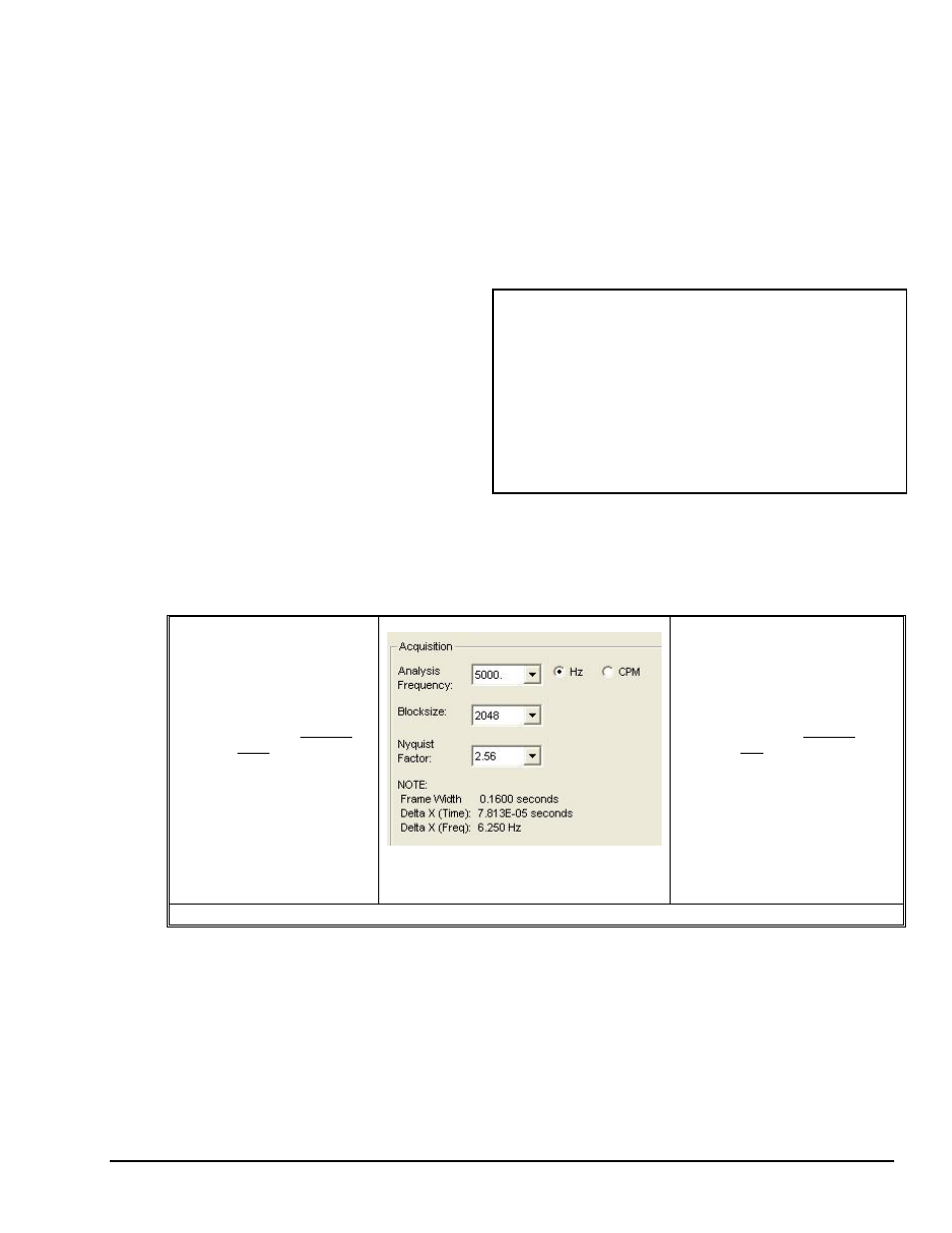Measurement Computing eZ-PostView rev.2.0 User Manual
Page 81

eZ-Analyst
969795
Edit Menu 4-3
A Note Regarding Frequency Resolution
This note pertains to frequency resolution and is related to the values seen in the Analyzer Tab’s
Acquisiton Panel (next two figures). The frequency resolution is related to the Analysis Frequency
(bandwidth), Blocksize (the number of data points in one block of data), and the Nyquist factor (a
user-selected variable). The following equations apply.
w = b / 2.56f
Where:
w = Frame Width
b = Blocksize
2.56 is one of 3 selectable
Nyquist Factors. The other
two are: 5.12 and 10.24
f = Analysis Frequency
Delta X (Frequency) = 1/w
Where:
Delta X (Frequency) is the frequency resolution
w = Frame Width
With these equations we can see how the Frame Width and Delta X (Frequency) are calculated.
Example 1 (see figure)
2.56 is being used for the
value of the variable.
Given:
Analysis Frequency 5000 Hz
Blocksize 2048
w = b / 2.56f
= 2048 / (2.56)(5000)
= 0.16 seconds
Delta X (Freq) = 1/w
= 1 / 0.16
= 6.25 Hz
Acquisition Panel on
the Analyzer Tab
The values shown pertain to example 1.
Example 2 (no figure)
2.56 is being used for the value
of the variable.
Given:
Analysis Frequency 5000 Hz
Blocksize 128
w = b / 2.56f
= 128 / (2.56)(5000)
= 0.01 seconds
Delta X (Freq) = 1/w
= 1 / 0.01
= 100 Hz
Note: A Delta X (Freq.) of 6.25 Hz indicates a higher frequency resolution than a Delta X (Freq.) of 100 Hz.
Higher frequency resolutions indicate that the signal trace will be based on more data points for a
given time frame. The higher the frequency resolution, the smoother the trace will be.
With other factors unchanged . . .
¾ Increasing Blocksize increases Frequency Resolution.
¾ Increasing Analysis Frequency decreases Frequency
Resolution.
¾ Increasing the Nyquist Factor decreases Frequency
Resolution.
The lower the “Delta X” frequency, the higher the
Frequency Resolution. Thus, a Delta X (Freq.) of 6.25
Hz indicates a higher frequency resolution than does a
Delta X (Freq.) of 100 Hz.
